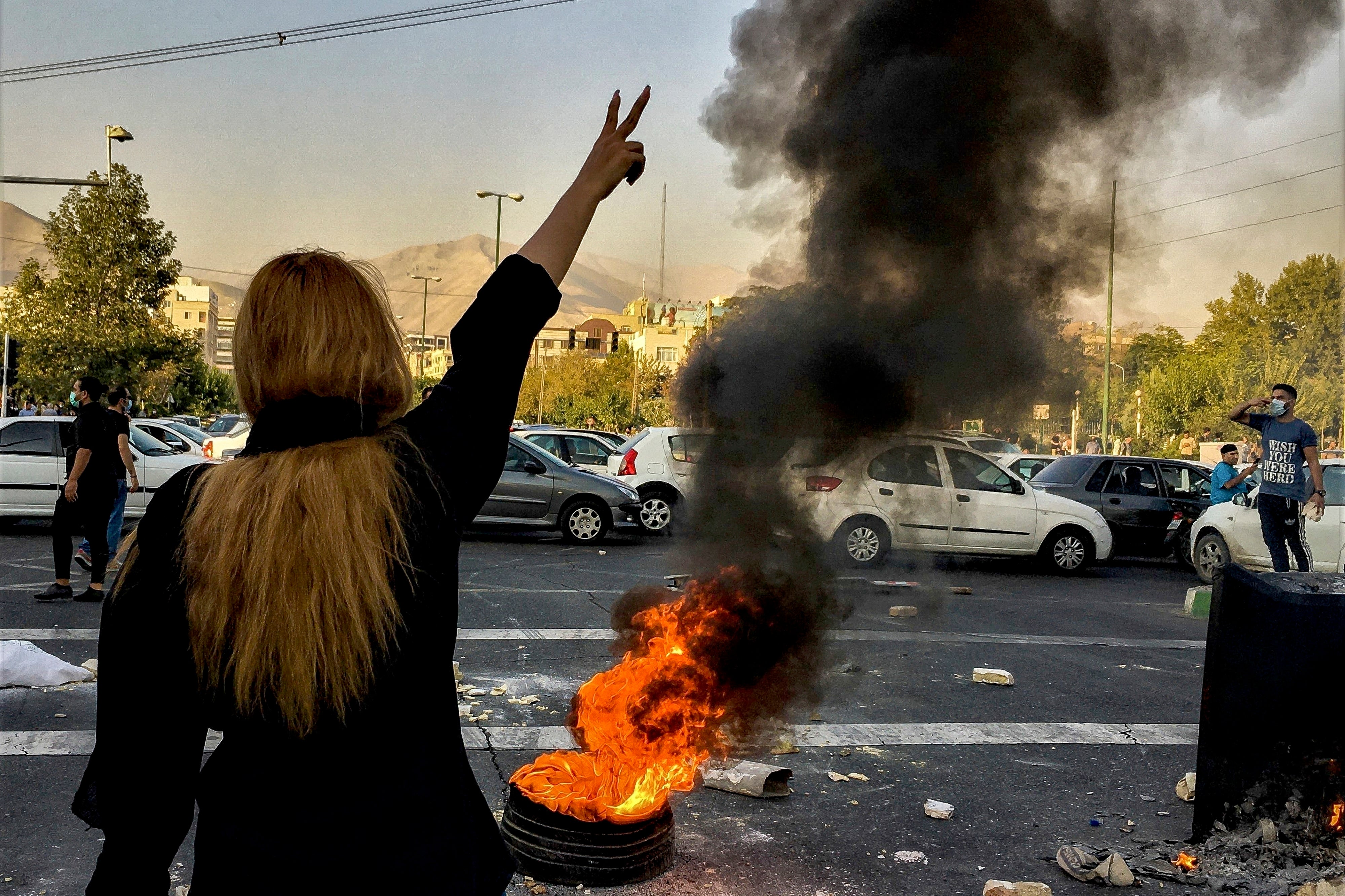Iran officials sentence 5 to death for killing Basij officer
Iranian state media says authorities have sentenced five people to death for allegedly killing an officer affiliated with Iran’s elite Islamic Revolutionary Guard

Your support helps us to tell the story
From reproductive rights to climate change to Big Tech, The Independent is on the ground when the story is developing. Whether it's investigating the financials of Elon Musk's pro-Trump PAC or producing our latest documentary, 'The A Word', which shines a light on the American women fighting for reproductive rights, we know how important it is to parse out the facts from the messaging.
At such a critical moment in US history, we need reporters on the ground. Your donation allows us to keep sending journalists to speak to both sides of the story.
The Independent is trusted by Americans across the entire political spectrum. And unlike many other quality news outlets, we choose not to lock Americans out of our reporting and analysis with paywalls. We believe quality journalism should be available to everyone, paid for by those who can afford it.
Your support makes all the difference.Iranian authorities sentenced five people to death for allegedly killing an officer affiliated with Iran’s Islamic Revolutionary Guard, state media said Tuesday. Eleven others received lengthy prison sentences.
The 13 men and three minors had been charged with killing Ruhollah Ajamian, an official from the Basij, a paramilitary volunteer branch of Iran's elite Revolutionary Guard, according to the report from IRNA, Iran’s state news agency.
The five sentenced to death Monday were charged by Iran's Revolutionary Court, along with eight others. Three boys were charged by Iran's Criminal Court, according to the report. Iran’s judiciary spokesman, Masoud Setayeshi, who is cited in the report, provided no evidence to support any of the accusations.
The alleged killing took place In Karaj, near Tehran, on Nov. 12 when the 16 encircled and attacked Ajamian with knives and stones, the report said. IRNA did not disclose the identities of the 16. It said their sentences can be appealed.
The sentencings come amid months of anti-government demonstrations that have been violently suppressed by Iran’s security forces. The protests, now entering their third month, were sparked by the death in police custody of 22-year-old Mahsa Amini, who was detained for allegedly violating the Islamic Republic’s strict dress code. They have since escalated into calls for the downfall of Iran’s clerical rulers, posing one of the most serious challenges to Iran’s theocracy since the 1979 revolution.
Iran’s Revolutionary Court regularly hands out death sentences. The court was established following the 1979 Islamic Revolution. According to Amnesty International, Iran executed at least 314 people in 2021, more than half the total state executions recorded across the Middle East that year.
Last week, Iranian authorities executed four people it accused of working for Israel’s Mossad intelligence agency. It provided no evidence to the public for any of the four men's alleged crimes.
So far, at least 473 people have been killed and 18,200 others arrested in the protests and the security forces crackdown that has followed, according to Human Rights Activists in Iran, a group monitoring the demonstrations.
Over the past few days there has been growing confusion around the fate of Iran's morality police and Iran's enforcement of its strict religious dress code. On Sunday Iran’s chief prosecutor, Mohamed Jafar Montazeri, said the morality police had been shut down in a report published by the semi-official state news agency ISNA. The previous day, the prosecutor also said the laws surrounding the wearing of the Hijab were under review, but offered no indication the country was planning to revoke the law
For weeks, fewer morality police officers have been seen in Iranian cities. Across Tehran, It has become common to see women walking the city’s streets without wearing the hijab, particularly in wealthier areas.
Subscribe to Independent Premium to bookmark this article
Want to bookmark your favourite articles and stories to read or reference later? Start your Independent Premium subscription today.